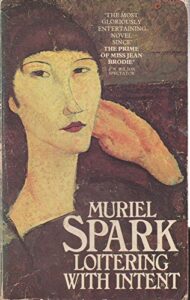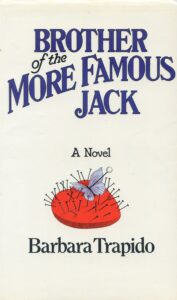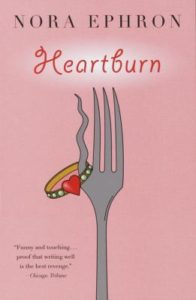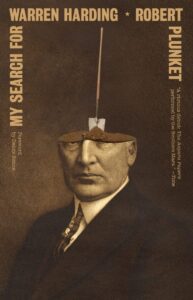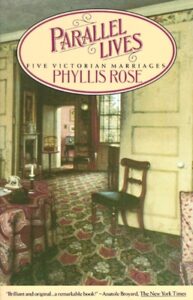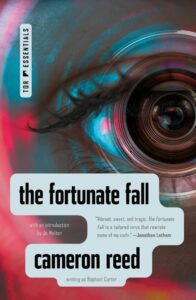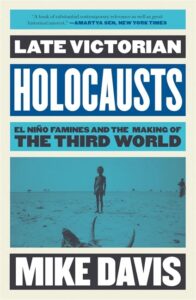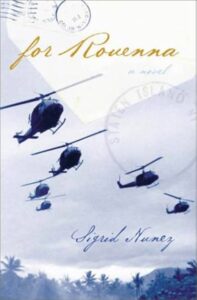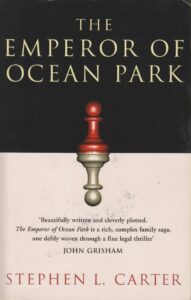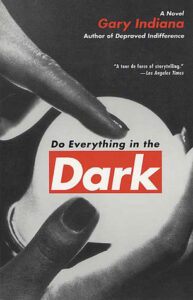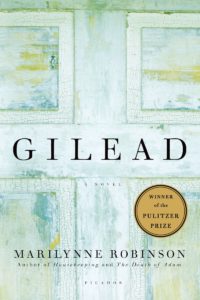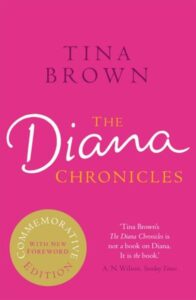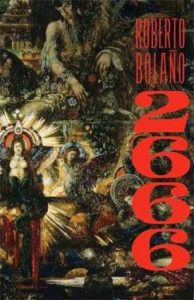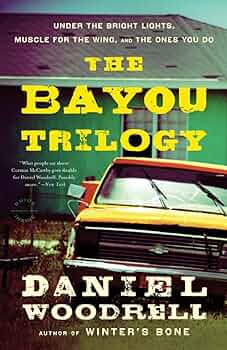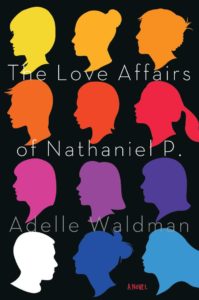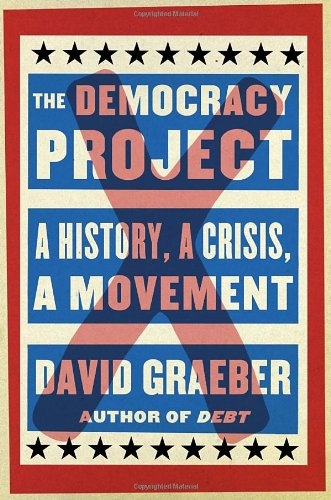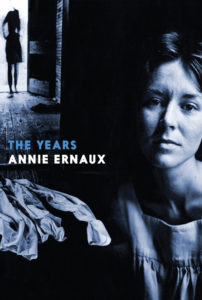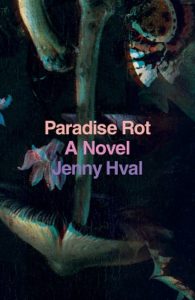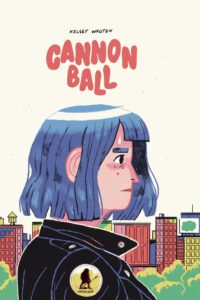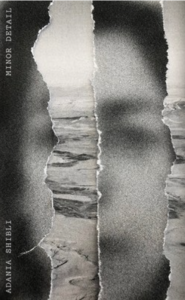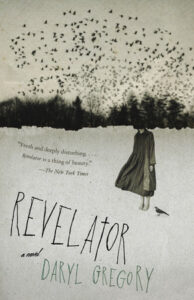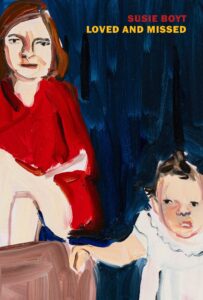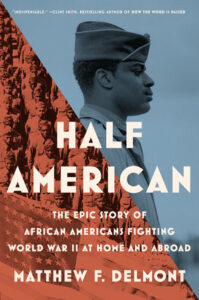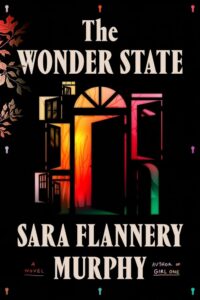It’s December, and so the literary internet, such as it is, is awash in best-of book lists. I cannot say that this website is not complicit in this (are we the worst? we might be the worst), but it can also, admittedly, get a little tedious. After all, books are not only important during the year of their publication, and you never know when you’ll pick up something old, weird, and randomly incredible. To that end, I asked the Lit Hub staff about the best books they read in 2024 that were not published this year. The result is a list of recommendations for anytime, or whenever you need something a little different.
Article continues after advertisement
A Scottish woman stole my heart this year. But we all love Muriel Spark, right? Who can do more in two hundred pages? Who can reliably dazzle and mystify without ever seeming to show off?
Loitering With Intent is a totally bananas novel. Like the Nunez, it’s also concerned with the ethics of authorship, but—you know, make it funny. A young woman on the precipice of realizing her own literary goals falls in with a group of eccentric richies who are all looking to ghost-write their memoirs. What follows is a meditation on the folly of narrativizing one’s own life. When does the story eat the truth? There’s some door-slamming farce and hallucinatory set-pieces on the way to answering this question, but we always stay grounded. Just extreme fun. –Brittany K. Allen, Staff Writer
I cannot get over this charmer from a woman who “became a novelist late and by accident.” Originally published in 1982, Trapido’s debut is a bildungsroman with freckles of first love. The book follows Katherine, a plucky British university student, as she falls in succession for an eccentric professor, his mighty wife, their charismatic family, and some other surprise dudes. Our open-hearted hero is determined to suck up life experience. She chronicles her swoons, heartbreaks, and quickening consciousness at a fond remove. And against its chosen backdrops of swingin’ 60s London, Oxford, and Rome, the prose just shimmers. A little like Lynn Barber’s An Education—but even better company. Thanks to my friendly booksellers at Three Lives Books for nudging this one onto my pile. –BA
Nora Ephron, Heartburn (1983)
Poor Rachel Samstat; at seven months pregnant she discovers that her husband, Mark, is in love with another woman. There’s not much plot to the novel other than Rachel coping with her failing marriage, debating whether to try and win Mark back or throw him out—the reader bounces around to her group therapy sessions, friendships, and career opportunities, enjoying a handful of eighties recipes (pot roast made with a can of cream and mushroom soup, a truly odious sounding casserole made with pears and lima beans) sprinkled throughout. But the driving force here, and for all Ephron, is voice—she is funny and fun. There are certainly less politically correct moments, but nothing so wildly offensive that it’s unreadable, especially since Rachel (who is just a stand-in for Ephron and her separation from Carl Bernstein) is incredibly self-deprecating; she holds the harshest criticism for herself. –Emily Firetog, Deputy Editor
This is a genuinely funny novel, which is not something I get to say often when recommending a book. The characters in Plunket’s book are bizarre and bumbling, and they get themselves into untenable situations—it’s a literary treatment of the kind of comedy I’m more used to seeing on the screen. The punchlines and targets of the humor are dated in places and really don’t hold up in others, but I was surprised overall at how much the jokes still work. It’s refreshing, especially when so much of the humor I come across in novels is either too smart—arch, MFA-workshopped references and clever asides—or else it’s too perky—sunny, rom-com bubbliness filtered through Twitter memes and Tumblr lingo. Plunket’s novel is neither of those things. He’s biting and satirical—there’s a mean edge to this book. More than from the characters and set-ups, the tone comes from Plunket’s narrator, who is a preening ghoul, a delusional man who crashes through the world judging everyone but himself. He’s cruel, but funny and unfiltered, the kind of person you want to be seated next to at a boring dinner party. –James Folta, Staff Writer
We are in an era of marriage and divorce books aplenty: it feels like every month there is a new, buzzy, burn-it-all-down manifesto about our culture and that institution. Some are amazing, some are terrible, but if you have to read just one book about marriage, an end-all-be-all book, it should be Parallel Lives by Phyllis Rose. Rose is straightforward about her topic, and clear about her directions as you read the book: it should make you question the presumption of marriage, or as she calls it, the fiction of marriage. She uses the writings of five Victorian literary couples to delve deeply into the inner workings of their unions, to understand their patterns, sex lives, power balances, and general happinesses, while consistently returning to the idea of marriage as a whole, and how central that story has been to all of our lives whether we know it or not. She makes fascinating and radical demands for “more plots” to take up the same level of importance we’ve long allotted to marriage, and to open our minds to allow different sorts of imaginative realities to make up our lives rather than the one we have been fed from the beginning. A must read! –Julia Hass, Book Marks Assistant Editor
Cameron Reed (writing as Raphael Carter), The Fortunate Fall (1996)
I love a good reissues series and Tor’s ‘Essentials’ line is one of the best going. Sometimes, they’re reissuing well-known titans of the genre (Gene Wolfe, China Miéville, Kim Stanley Robinson)—but sometimes, they’re bringing back into print a novel that has otherwise disappeared from the conversation when it really shouldn’t have. The Fortunate Fall is a great example of the latter: a gripping late-90s cyberpunk novel in conversation with William Gibson and Neal Stephenson but also The Continuous Katherine Mortenhoe and Flow My Tears, The Policeman Said (and maybe a smidge of Star Trek IV, IYKYK). It’s set some ~200 years into the future, where augmented humans deliver the news (and all of what they feel along with it) and Africa is the technological center of the world—but it is a powerfully timely story (like all great SF) about genocide, queer love, surveillance, revolution, and the dangers of giving over our humanity in the pursuit of more advanced technology. Here’s hoping this book gets a well-deserved and more robust second life. –Drew Broussard, Podcasts Editor
This is the second book I’ve read from Mike Davis (City of Quartz, a prescient history of the military-prison-industrial complex in Los Angeles, was frequently passed around by my anarchist friends just after college) and Late Victorian Holocausts may be even more prophetic and revelatory. First published in 2000, Late Victorian Holocausts looks at the deadly combination of drought, colonialism, and imperialism at the end of the 19th century, in which the seeds of catastrophe can be found in the repeated failures of imperial overlords to prevent enormous numbers of their new subjects from starving to death. While the specific climate conditions examined in the text are linked to the El Nino/la Nina cycle, the book clearly sets out the mechanisms of extraction & indifference that are already part of the enormous suffering caused by climate change; suffering that will surely continue to make this book distressingly relevant to our current age.
One particularly damning fact: while the British claimed that building railroads in India would allow them to move grain surpluses quickly to famine-stricken areas, the opposite proved true—the British colonial administrators took grain reserves away from starving people, and those in areas connected to imperial infrastructure were thus more likely to die of famine than those without a local railway connection. Another damning fact: the British government censored the one guy to respond appropriately to a famine so much that the next time a big drought came around, he showed exceptional cruelty in quest of avoiding further criticism. The number of deaths caused by the modernization of poverty, the indifference of imperial infrastructure, and the extreme vacillations of climate conditions is proven by Mike Davis to have been enormous—and the factors that caused so much suffering are back in play for the conceivable future. This book is not a warning—we’ve come too far for that. It is a prophecy. –Molly Odintz, CrimeReads Managing Editor
Last year I decided to become a Nunez completist. There’s just something so confident and hypnotic about her books—she has a knack for drawing you into another’s mind and holding you hostage there. This earlier work follows a novelist, fresh off the heels of a successful debut, who gets re-entangled with a childhood acquaintance who served as an army nurse in Vietnam. The anonymized writer protagonist will be familiar to fans of Nunez’s recent fiction (The Friend, The Vulnerables) but Rouenna the nurse is a singular character—brittle, warm, and haunted by sharp turns. This novel draws a fine psychological portrait of a traumatized veteran, then layers in a complex exploration of emotional and political violence. (Notably, this book is also—like my other recc, Do Everything in the Dark, written in the melancholic aftermath of 9/11.) Is our hero right to take on Rouenna’s story, and attempt to capture it in fiction? What do we owe our subjects, anyway? Smart, unsettling, and unafraid to linger on the knots. I read it in one go. –BA
It’s been a long time since I read a mystery so thoroughly, thrillingly immersive as Stephen L. Carter’s The Emperor of Ocean Park. Carter’s novel chronicles the family dynamics of Talcott Garland in the wake of his father’s death and offers a vivid portrait of upper class African-American life moving between Washington D.C. and Martha’s Vineyard. Political scandal and family secrets inform the novel’s action, but more than anything it’s the lens of our narrator, viewing the evolution of American society and intellectual discourse, that makes The Emperor of Ocean Park such an unforgettable novel. –Dwyer Murphy, CrimeReads Editor-in-Chief
I had this book languishing in my TBR pile for a long time, I think because Gary Indiana’s prose was so often presented to me with daunting adjectives. (Acidic, acerbic, caustic, sharp…) The wait was foolish; I regret it. Though certain of those adjectives do apply to this chronicle of an artistic friend group fractured by premature AIDS deaths, heartbreaks, petty and profound jealousies, and inevitable middle-age drift, this novel can also be (brutally) funny, and its audacious conveying of the unruliest emotions totally won me over. Unlike many of his peers, the late, great Indiana never romanticized the New York demi-monde. But that only renders the pain and pleasures of this specific community all the more alive. Also, the sentences! Snacks, every one! –BA
Marilynne Robinson, Gilead (2004)
Sometimes you end up avoiding books because they are just too damn big—spiritually, not necessarily literally (although sometimes that too). Despite my now-wife gifting me a copy of Gilead on our first serious Christmas together as a couple, nearly a decade ago, and despite my otherwise-strongly-held plan to divest of any books that sit on my TBR for longer than three years… I hung onto this one, until just a couple days ago. I picked it up before dawn on a brutally cold, lightly snowy morning… and it turns out, it absolutely lives up to the hype. Unbelievably good prose, I’m so mad it took me this long to get around to it. As a life-long avowed atheist-existentialist, I wonder if I was worried about the religiosity of Robinson’s writing—but, if you’ll indulge me a riff on a quote from this very novel: “Robinson is a famous Calvinist, but she is about as good on the joyful aspects of life as anybody, and she loves the world. Of course she thinks religion is a necessary means of understanding the world and joy cannot exist pure and undisguised. That is her one error, and it is significant. But she is marvelous on the subject of joy, and also on its religious expressions.” –DB
When I’m doing one of the myriad mundane tasks that make up most of a life (chores, errands, exercise, pushing a stroller), all I want is a stream of smart, barbed gossip in my ears. All the better if it’s gossip of yore, read by Tina Brown. If you have a similar craving, I highly recommend Brown’s snarky, well-researched tale of Princess Diana’s life and death, as well as the general dysfunction of the Windsors. Few had Brown’s access, and fewer can tell a story as compellingly as she can. At the risk of sounding like a much-loathed British tabloid, it’s delicious. –Jessie Gaynor, Senior Editor
Roberto Bolaño, tr. Natasha Wimmer, 2666 (2008)
I put off reading 2666 for years. It was too big, too daunting, too death-haunted. It sat there at the bottom of my TBR pile, sandwiched between Lonesome Dove and Infinite Jest, mocking me. People told me wild, impossible things about it. They said there was an entire section dedicated to a book critic love triangle. They talked in hushed tones about the endless, hellish descent that made up the femicide portion of the book. They said it was the most significant literary work of the 21st century. They said a great many things, and I was afraid. But they were right. This gargantuan meditation on violence and literature is horrific, comic, playful, deadening, thrilling, and existentially terrifying. I have no idea how long it took me to get through it, but I emerged from its bloody pages changed. Carpel tunneled, and changed. –Dan Sheehan, Book Marks Editor-in-Chief
This book has an unforgettable premise: two foreign cities occupy the same physical space, which puts immense mental strain on its inhabitants, requiring them to endlessly not see, unsee, and pretend. The tension settles into strange and byzantine systems, layers of obfuscation that a detective must navigate to solve a murder. Mieville’s gripping, speculative setting is a slight heightening of the apartheid reality in Palestine and Israel — reading this book in 2024 felt dizzying, to say the least. The best science fiction can feel like a satisfyingly elaborate sleight of hand: after all the flash and dazzle, you end up staring at the same card you started with. –JF
Every year, when “sweater weather” begins to lose its charm and the sun starts to set at 4pm, I try to read my way to hotter climes. This year’s destination was northern Louisiana as I ventured into Daniel Woodrell’s sweaty, profane, damn-near Rabelaisian trio of hardboiled Cajun novellas. Set in the fictional upriver bayou town of St. Bruno, the trilogy follows reluctant hero Detective René Shade as he navigates life among the crooks, hoodlums and ne’er do wells who’ve set up shop at the edge of the swamp, busting crooked cops, fist-fighting with family members, and generally trying to do the right thing. Woodrell has a virtuosic ear for argot-heavy dialogue and has a talent for evoking all of life’s wonderful intoxicants in a way that can leave one a little woozy after reading. Best of all, the trilogy is not so much procedural as it is deeply atmospheric, which is a good thing on cold northern nights. –Jonny Diamond, Editor-in-Chief
This is the kind of book that makes me mad at everyone who’s read it for not having told me about it until now. Just that perfect sweet spot genre: literary, funny, smart, chilling in its astuteness, realistic and humane, the kind that makes me fall in love with books all over again for their staggering ability to convey life as it feels. If it was a wine it would be drinkable: goes down easy and you’re always wishing for more. Love Affairs sums up dating and men and desire in a scathing and yet unfortunately accurate way, depicting the quests and the longings and the voracious need to be wanted, and yet the harrowing insistence of the void at the center of these wants. The realization that one may never quite get what they’re looking for, may always be seeking. It’s eviscerating about men, but lives inside the mind of one with crystalline authenticity: you may not like what you find there, but you have to respect Adelle Waldman’s ability to access the egotistical millennial male mind and its contrasting, confused, and at times cruel notions. –JH
As the American democratic experiment lurches towards obsolescence I returned to David Graeber’s post-game analysis of Occupy Wall Street (of which he was something like a co-founder). Equal parts on-the-ground history and anarchist organizing playbook, The Democracy Project uses the OWS movement as a jumping off point to examine the rich, weird, and truly innovative history of direct democracy in America. If we are going to get through the next four years and, more importantly, help those most at risk from actively hostile national politics, we’re going to need all the good ideas we can get; I wish Graeber were still around to help, but at least he left us his incredible body of work. –JD
Annie Ernaux, tr. Alison Strayer, The Years (2017)
I may be the last person I know to read The Years, and I can’t say why—it is exactly the kind of book I like best: genre-bending, discursive and variable, at once a story of a single consciousness and the story of the whole world. Originally published in France in 2008, The Years is a memoir—of sorts—of the author’s life from 1940 to 2006, but it is also a book about a generation, a book about all of our generations, a book about time itself. It was, weirdly, just what I needed during a cold, hard winter. –Emily Temple, Managing Editor
Jenny Hval, tr. Marjam Idriss, Paradise Rot (2018)
I love a nasty little freak book, and Paradise Rot is nothing if not a nasty little freak book for freaks. The basic plot of the book is that a young woman from Norway studies abroad in England and lives in a weird warehouse-turned-apartment with a weird roommate. The real plot of this book is the concept and reality of decay. The apartment is falling apart, sprouting mold and fungus in every room, and the two roommates only exacerbate the rot. The main character, Jo, has become untethered in her new home and she’s starting to go to seed.
I loved how visceral and gross Hval/Idriss’ descriptions were. The book sometimes felt like a series of prose poems rather than a novella, which is a vibe I always love. The writing is lucid and precise even as the world of the book becomes more and more dreamlike. Paradise Rot is a book that sticks with you. It’s also very much a piss book. Impossible to accurately capture how much piss is in this book. However much you’re imagining right now, it’s not enough. –McKayla Coyle, Publishing Coordinator
Kelsey Wroten, Cannonball (2019)
If you’re a messy art lesbian, you’ll love this book. It follows an aspiring author as she attempts to make the shift from art school graduate to professional artist. Cannonball is, in many ways, a character study. Except the character at its center is wholly unlikeable, which makes the book feel less like an auteur project and more like a really great gossip session where your best friend tells you everything about the worst person they ever met. I don’t know about you, but that’s my idea of a perfect day. The art is stunning, the story is engaging and funny and frustrating all at once. It’s relatable without feeling like it’s trying too hard to be relatable (not an easy feat). When my friend Oliver recommended this to me, they described it as “if Charles Foster Kane was an art lesbian.” If that doesn’t hook you, I don’t know what will. –MC
Minor Detail is a short book of quiet empathy. Shibli’s novel is split into two parts: a Bedouin-Palestinian girl is assaulted and killed by Israeli soldiers in 1949, and decades later, a modern Palestinian woman tries to uncover more about the crime. Shibli writes beautifully and subtly, and the book is full of disarming turns of phrase. Her contemporary character, driving while considering a modern road map next to a map of pre-Nakba Palestine, worries that she “may get lost in the folds of a scene” that has changed so drastically. Minor Detail is about memory, counter-memory, and the resulting folds of all this layering. And it’s about what and who gets swallowed in those folds. –JF
Daryl Gregory, Revelator (2021)
Readers I trust have been raving about this for a while, but for whatever reason it just never made it to the top of my TBR—until this October, when it stood out among a pretty stacked spooky-book reading spree. Set in the first half of the century, replete with great backwoods-Gothic visuals and a genuinely original ‘creature’ haunting the margins, it manages to be chilling and thrilling in equal measure while never shirking the big emotional weight of a story that’s also about family and identity. I’ll be thinking about the Ghostdaddy for a long, long time. –DB
It’s difficult to write about child-rearing in a way that’s neither saccharine nor desperate, but Susie Boyt’s slim, perfect novel about a woman raising the daughter of her own daughter, who is in the grip of addiction, strikes the perfect balance of quotidian joy and profound heartbreak. Describing the novel as a page-turner feels wrong, but in its quiet way, it was more gripping than anything else I’ve read recently. I’m in awe of Boyt’s ability to turn the gathering of flowers or the drinking of tea on the front steps into moments of pure wonder. –JG
Matthew F. Delmont, Half American (2022)
Half American collects the varied histories of Black Americans in the 1930s-1940s fight against fascism, from the Spanish Civil War through World War II. The title comes from a provocative letter that a young black man wrote to his newspaper, asking “Should I sacrifice my life to live half American?” It was an urgent question.
Delmont casts a wide net, telling the stories of soldiers, airmen, writers, and laborers, focusing especially on the unsung military support and supply staff who made victory possible. The book tells of courage in combat, but also courage in labor struggles, on military bases, in the legal system, and in DC’s halls of power. Delmont’s book complicates the rosy narrative America tells itself about WWII — as usual in American history, we failed to honor the lofty idealism of our rhetoric with our actions. America won the war, but was unable to deliver the double victory so many Black Americans asked and fought for: a victory against racist fascism abroad, and a victory against racist fascism at home. –JF
One of the hardest things about the end of any given year is rushing to finish books-from-that-year in case you want to include them on your list. Sara Flannery Murphy’s The Wonder State is one such read that I didn’t get to until January—and then I was kind of pissed, because I loved it and wished I’d gotten to it in time for last year’s list. It is absolutely terrific, with Stephen King vibes and Kelly Link energy: five old friends drawn back home to the Ozarks by a cryptic letter. They return and, in alternating timelines, discover/rediscover the strange and magical houses that peppered their small town. Tremendously imaginative while keeping up a thriller’s pace—I’ve not stopped thinking about these houses for almost a year. –DB

